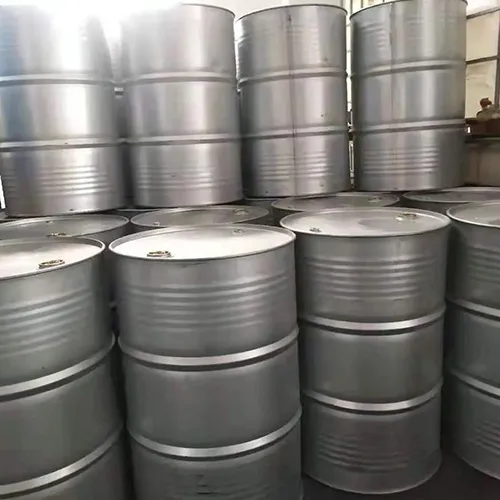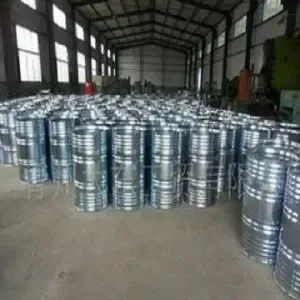Polyaspartic Acid (PASP) for Agricultural Efficiency | ThinkDo Chemicals
Polyaspartic Acid (PASP) for Agricultural Efficiency | ThinkDo Chemicals
Discover how Polyaspartic Acid (PASP) is revolutionizing agricultural practices by enhancing fertilizer efficiency and promoting sustainable farming. As a leading manufacturer of green chemical solutions, ThinkDo Chemicals offers cutting-edge products designed to meet the evolving needs of modern agriculture. Explore the science behind PASP, its transformative applications, and how it can elevate your production outcomes.
What is Polyaspartic Acid (PASP)?
Polyaspartic Acid (PASP) is a biodegradable, environmentally friendly polymer derived from aspartic acid, a naturally occurring amino acid. This innovative compound is engineered to improve nutrient absorption in crops, optimize soil health, and reduce the environmental footprint of traditional fertilizers. By integrating PASP into your agricultural practices, you can achieve significant improvements in crop yield while maintaining ecological balance.

Key Benefits of Polyaspartic Acid (PASP)
- Enhanced Fertilizer Efficiency: PASP increases the bioavailability of nutrients, ensuring that crops absorb more of the applied fertilizers. This leads to reduced fertilizer usage and lower production costs.
- Soil Health Improvement: PASP enhances soil structure and microbial activity, promoting long-term soil fertility and sustainability.
- Environmental Protection: As a biodegradable substance, PASP minimizes nutrient runoff and leaching, reducing water pollution and preserving natural ecosystems.
- Cost-Effective Solution: By optimizing fertilizer use, PASP helps farmers and agricultural businesses save on input costs while achieving higher yields.
Market Demand and Industry Challenges
The global agricultural sector faces pressing challenges, including rising input costs, soil degradation, and environmental regulations. Traditional fertilizers often result in inefficient nutrient uptake, leading to wasted resources and environmental harm. According to a report by AgricultureWorld, over 40% of applied fertilizers are lost to the environment due to poor soil management and inefficient application methods.
Enter Polyaspartic Acid (PASP), a game-changer for modern agriculture. By addressing these critical issues, PASP offers a sustainable solution that aligns with the goals of eco-friendly farming and resource efficiency. Its ability to enhance nutrient retention and reduce chemical runoff makes it a preferred choice for forward-thinking agricultural enterprises.
Company Expertise: ThinkDo Chemicals
ThinkDo Chemicals is a pioneer in the development of green chemical solutions, with over two decades of expertise in agricultural innovation. Our mission is to provide high-performance products that support sustainable farming practices while delivering measurable economic benefits. With a state-of-the-art R&D facility and a team of dedicated scientists, we continuously refine our formulations to meet the dynamic needs of the agricultural industry.
Our commitment to quality is reflected in our ISO 14001 and ISO 9001 certifications, ensuring that every product adheres to the highest standards of environmental responsibility and operational excellence. As a trusted partner to farmers and agribusinesses worldwide, we offer tailored solutions that empower your operations with science-backed results.
Technical Specifications of Polyaspartic Acid (PASP)
| Parameter | Specification |
|---|---|
| Chemical Formula | (C₄H₇NO₂)ₙ |
| Appearance | White to off-white powder |
| Particle Size | Mesh 80-200 |
| pH Value (1% Solution) | 4.5-6.0 |
| Viscosity (1% Solution) | 50-150 cP |
| Storage Stability | 12 months in dry conditions |
Applications of Polyaspartic Acid (PASP)
Polyaspartic Acid (PASP) is a versatile additive with wide-ranging applications across the agricultural sector. Here are some key use cases:
- Fertilizer Formulations: PASP is integrated into liquid and granular fertilizers to enhance nutrient solubility and root absorption. This ensures that crops receive optimal nutrition throughout their growth cycle.
- Soil Amendments: By improving soil structure and water retention, PASP creates a more favorable environment for root development and microbial activity.
- Hydroponic and Greenhouse Cultivation: PASP's ability to stabilize nutrients makes it ideal for controlled environments where precise nutrient delivery is critical.
- Organic Farming: PASP is compatible with organic farming practices, providing a natural alternative to synthetic chemical enhancers.
Case Studies: Real-World Impact
Thousands of farmers and agricultural businesses have already experienced the transformative potential of PASP. Here are a few success stories:
Case Study 1: Large-Scale Corn Production
A major corn producer in the Midwest implemented PASP in their fertilizer blends, resulting in a 25% increase in yield and a 30% reduction in fertilizer costs. The improved nutrient efficiency also led to healthier soil, reducing the need for chemical soil amendments.
Case Study 2: Organic Vegetable Farming
An organic vegetable farm in California incorporated PASP into their irrigation system, achieving a 20% improvement in crop quality and a 15% increase in production. The farm reported significant cost savings and a stronger market position due to the premium quality of their produce.
How to Use Polyaspartic Acid (PASP)
Proper application of PASP ensures maximum benefits for your crops. Follow these guidelines for optimal results:
- Preparation: Dissolve PASP in water according to the recommended dosage (typically 1-5% of the total solution). Stir thoroughly to ensure complete dispersion.
- Application: Apply the solution during planting or as a foliar spray. For soil treatments, integrate the solution into the irrigation system or apply directly to the root zone.
- Monitoring: Observe crop response and adjust the dosage as needed. Regular soil testing can help fine-tune the application strategy.
For specific recommendations, consult our product technical sheet or contact our team of agricultural experts.
Environmental and Safety Compliance
Polyaspartic Acid (PASP) is designed with sustainability in mind. It meets the following environmental and safety standards:
- Biodegradability: PASP breaks down naturally in the environment, minimizing long-term ecological impact.
- Non-Toxic: PASP is safe for plants, animals, and humans, with no harmful residues in the soil or water.
- Regulatory Approval: PASP complies with international standards, including EPA and EU REACH regulations.
Customization and Support
At ThinkDo Chemicals, we understand that every agricultural operation has unique needs. Our team offers:
- Custom Formulations: Tailor PASP to specific crop requirements or soil conditions.
- Technical Assistance: Access expert advice on application methods and integration into existing systems.
- Training Programs: Equip your staff with the knowledge to maximize the benefits of PASP.
Ordering and Delivery
Our flexible packaging options and reliable logistics ensure seamless delivery to your facility. PASP is available in the following formats:
- 25kg bags
- 250kg drums
- Custom bulk quantities
For large orders, we provide dedicated shipping solutions to meet your deadlines. Contact our sales team to discuss your requirements and receive a personalized quote.
Customer Testimonials
"Since integrating PASP into our fertilizer program, we've seen a remarkable improvement in crop health and yield. The cost savings have been substantial, and our customers are thrilled with the quality of our produce." - John Miller, Farming Operations Director
"PASP has transformed our approach to soil management. It's a sustainable solution that aligns with our commitment to environmental stewardship." - Samantha Chen, Organic Farming Consultant
Frequently Asked Questions (FAQ)
Q1: How does PASP improve fertilizer efficiency?
A: PASP enhances nutrient solubility and root absorption, ensuring that crops utilize more of the applied fertilizers. This reduces waste and optimizes resource use.
Q2: Is PASP compatible with organic farming?
A: Yes, PASP is approved for use in organic farming and is free from synthetic chemicals that may conflict with organic standards.
Q3: What are the storage requirements for PASP?
A: Store PASP in a cool, dry place away from direct sunlight. The product has a shelf life of 12 months under proper conditions.
Conclusion
Polyaspartic Acid (PASP) is a breakthrough solution for modern agriculture, offering unparalleled benefits in fertilizer efficiency, soil health, and environmental sustainability. By partnering with ThinkDo Chemicals, you gain access to cutting-edge technology that empowers your operations with measurable results. Discover how PASP can transform your farming practices and drive long-term success. Explore our product page to learn more about PASP and its applications today.
Post time: জুলাই . 12, 2025 03:54


















